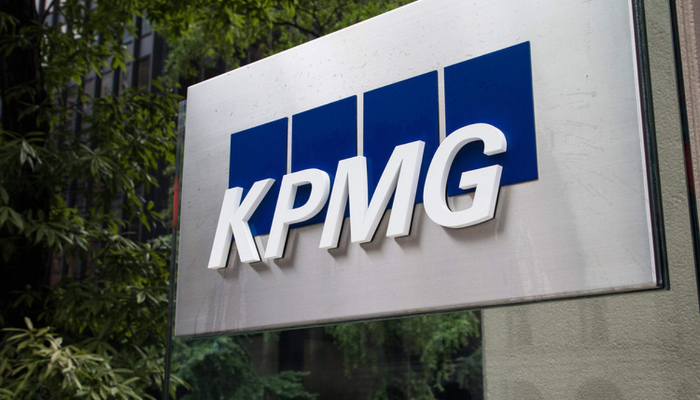In the dynamic landscape of global business, effective marketing strategies play a pivotal role in shaping the success of organizations. KPMG, a multinational professional services network, stands as a testament to this truth, employing an extensive and detailed marketing approach that has propelled the brand into a global powerhouse. In collaboration with students from the online digital marketing course at IIDE, let’s delve into a thorough examination of KPMG’s marketing strategy, exploring its origins, segmentation, campaigns, social media tactics, SEO strategies, and more.
Background: The Genesis of KPMG
KPMG, an acronym for “Klynveld Peat Marwick Goerdeler,” owes its existence to the merger of accounting firms Peat, Marwick, Mitchell & Co. in 1987. The collaboration of the four founding fathers—Piet Klynveld, William Barclay Peat, James Marwick, and Reinhard Goerdeler—marked a significant milestone in the history of accounting. Over the years, KPMG has grown into a global entity operating in 145 countries, providing audit, tax, and advisory services. With a revenue of 32.12 billion USD in 2021, KPMG’s vision is to make a positive impact today for a better world tomorrow.
Segmentation, Targeting, and Positioning:
KPMG’s market segmentation primarily revolves around geographical locations, with branches strategically established worldwide. This allows the company to tailor its services to adhere to specific laws and norms in various countries. The target market primarily comprises corporate firms, with the UK contributing significantly to the overall revenue. KPMG positions itself as a global enterprise, emphasizing inclusivity and sustainability in its operations.
Marketing Campaigns:
KPMG’s marketing campaigns reflect its commitment to inclusivity and progressive values. The “Turn Around” campaign, featuring three successful women from the KPMG Future Leaders Program, showcased the firm’s dedication to diversity and empowerment. Airing on major channels like NBC and CNBC, this campaign effectively highlighted KPMG’s values.
The “Step Into Tomorrow” campaign, conducted through a virtual symposium in 2020, showcased expertise in finance, tax, and regulations. This event, with global participation, elevated KPMG’s visibility in the financial sector.
The launch of “Elevate” introduced a new service, backed by a comprehensive online marketing campaign. Through platforms like YouTube, blogs, and advertorials, KPMG successfully brought this service to the forefront of corporate attention.
Social Media Marketing:
With a robust presence on platforms like Facebook, Instagram, LinkedIn, Twitter, and YouTube, KPMG’s social media strategy is comprehensive. Boasting millions of followers, particularly on LinkedIn, the firm maintains regular activity, showcasing a dedicated social media team. Content is often informational, including press releases, product launches, surveys, and financial updates.
SEO Strategies:
KPMG excels in Search Engine Optimization (SEO), evident from its impressive organic keyword count of 10,15,963 and a monthly organic traffic of 17,87,864. These metrics underscore the company’s success in driving online traffic and maintaining a strong online presence.
Influencer Marketing:
Interestingly, KPMG appears to focus less on influencer marketing, with no apparent collaborations with individual influencers. While they emphasize blogs and awareness campaigns on influencer marketing, the absence of direct collaborations suggests a different approach to brand promotion.
Ecommerce Strategies:
KPMG facilitates service access through its official website, where users can explore and avail services such as Audit and Assurance, Tax & Legal, Advisory, and Private Enterprise. The website also offers courses for purchase, enhancing its appeal as an educational resource.
Mobile Apps:
With a total of 52 apps available on iOS and Google Play, KPMG caters to diverse user preferences. These apps, tailored for different services and regions, enhance user accessibility and engagement.
Content Marketing Strategies:
The company’s blog serves as an informative hub, covering announcements, acquisitions, mergers, events, surveys, and financial consultancy insights. Social media channels further amplify these messages through promotional ads, driving traffic to the website and effectively engaging clients and users.
Unique Aspects of KPMG’s Marketing:
What sets KPMG apart is its integration of digital marketing across various platforms. With well-maintained blogs and active social media accounts, the company has achieved exponential growth in reach, page visits, and SEO. The balance between organic and paid digital campaigns has contributed to KPMG’s recognition as a top-ranked website on Google, attesting to its legitimacy and success as an international organization.
KPMG’s commitment to digital marketing, encompassing SEO, PPC, social media marketing, and email marketing, aligns with the modern business landscape, connecting the company with its clients across sectors. This balance between traditional and digital approaches has contributed to its success in the competitive professional services industry.
In conclusion, KPMG’s marketing strategy serves as a model for organizations aspiring to build a global presence. Through a combination of inclusive campaigns, robust social media engagement, effective SEO, and strategic positioning, KPMG has solidified its standing as a leader in the professional services domain. As the digital age continues to evolve, KPMG’s adaptive and innovative approach to marketing will likely remain a source of inspiration for businesses worldwide.




